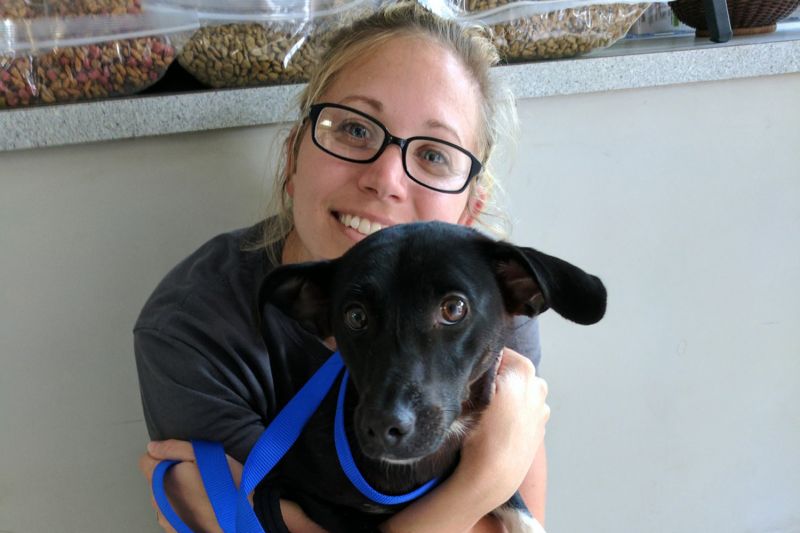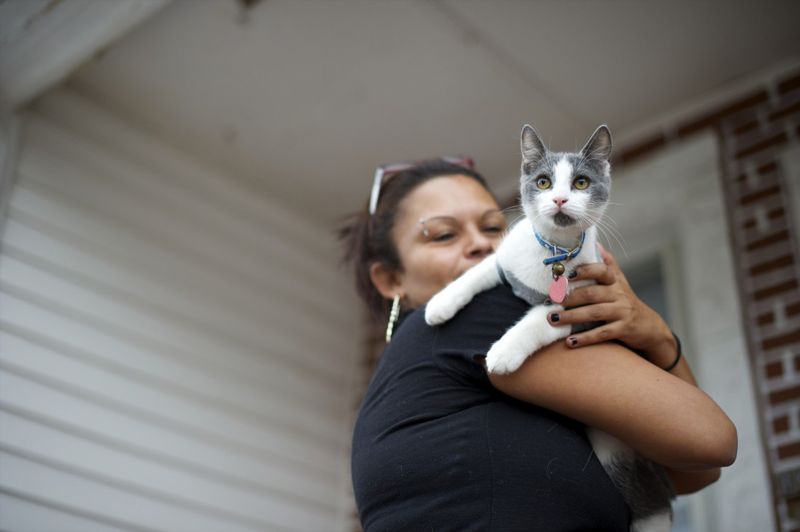Just the facts, ma’am … or maybe not!
Are we holding on to outdated beliefs just to make our brains comfortable? Inga Fricke explains how challenging our biases can help us save more pets
October 10, 2017

We are truly living in a remarkable age, when new studies and data on sheltering are shaping and confirming best practices seemingly every day. For the first time ever, we can truly set policies based on what we actually know, not what we think we know.
But no matter how much science and evidence is produced to dispel a myth (like “black dogs are overlooked for adoption”) or support a new best practice (such as eliminating adoption barriers), our field is often slow to embrace new information and make change.
Why? Because we’re human! And as much as we like to believe we are all smart, rational people who base all of our beliefs and decisions on "just the facts, ma’am," that’s simply not the way we are wired. In short, our brains are primed to keep us believing what we already believe, even in the face of irrefutable evidence to the contrary.
Now, let’s be clear—I'm not a doctor, a scientist, or even someone who can always follow the jargon on “The Big Bang Theory.” But I have always been fascinated about why people believe the things they do and why it seems so difficult to get people to change their views. After all, if I’m going to try and bring new data and information to shelters and rescue groups and ask them to embrace it, I need to at least have a basic understanding of what the potential barriers are.
What I have learned is that we all have a ton of cognitive biases that influence our thinking, so much so that they allow us to completely discount studies, research and evidence with relative ease. That’s especially true when that new information runs counter to our strongly held beliefs. So it's no surprise that for animal people—being extremely passionate about things like adoptions, pet-keeping in our communities, preventing cruelty and other high-stakes topics—these biases can easily kick into overdrive and shut out even potentially lifesaving information. Our brains see—or should I say, skew—the world to keep it a comfortable place for us, even if that ultimately hurts us more than helps us.

Let's start with something called “negativity bias.” Back in the days when we risked being eaten by lions every time we left our cave, it was a critical, lifesaving skill to remember in full detail situations that went badly. After all, if Uncle Ed was picked off because he made the mistake of wandering down the mountain path at dawn, we needed to make sure we didn't make the same mistake! So our brains became hardwired to remember negatives, particularly things that triggered the flight/fight response—and the 100 times we walked down the same path in the afternoon and weren’t eaten tended to simply pass into and out of our brains.
Today, most of us don't have to concern ourselves with evading hungry lions, but our brains are still primed to embed those negative panic/rage-inducing events deep into memory, while positive experiences tend to just pass through.
That's the reason if I asked you to tell me three horrible things you've witnessed in your animal welfare career, I bet you could recall them almost instantly—in fact, you'd probably have trouble stopping at just three! But if I asked you to tell me three heartwarming adoption or reunion stories, I think you’d have a bit more trouble.
Does that mean you've encountered way more horror stories than happy ones? No way! It just means that the negativity bias causes our brains to remember the bad events, first, last and always. The danger comes when we forget that this bias exists, and start to make policy and other decisions based on the mistaken notion that bad events truly outnumber the good.
How about the notion that by doing home checks, vet checks, landlord checks, etc., we can guarantee our animals a wonderful adopted life? This is a function of something called the “illusion of control.” Think about it: Those screens capture nothing more than a snapshot in time. That adopter might lose his job next week, might be evicted, might get divorced, might have mom move in after hip surgery, who knows? We have no control over what might happen in the days/weeks/months following adoption, yet the illusion of control lets us convince ourselves that by declaring an adopter “perfect” today, we are guaranteeing perfection tomorrow and forever.
Last but not least, there’s “confirmation bias,” which works on the premise that when we have strong beliefs, our brains will do just about anything to keep them intact—even if that means discounting credible new evidence. To put it simply, we like to be right, and our brains will go to great lengths to stay right! For example, if someone believes that the Earth is flat, I can show them tons images of the (clearly round) Earth taken from space, bring them to visit NASA, even have them meet with an actual astronaut, but instead of saying, "Gee, maybe I've been wrong this whole time," they may instead give me a dozen excuses about government conspiracies and cover-ups.
Think you're too smart to fall for that? I’m sorry to say it, but research shows that the smarter we are, the more our brains will stretch to confirm what we think we already know! As a character in Harper Lee’s To Kill A Mockingbird says,"[p]eople generally see what they look for, and hear what they listen for." That’s confirmation bias at work.
What does all of this have to do with animal welfare? Plenty! We think we are making policy decisions based on data and fact. But that might not actually be the case. We may simply be holding on to outdated notions that allow us to continue believing what we already “know” is true, and rejecting irrefutably true facts and data that challenge our beliefs and make our brains uncomfortable.
Ever have an adoption you just knew was going down in the annals of sheltering history as the greatest match ever, only to be stunned when the animal is returned a few weeks later? How about the adoption you just knew was going to be a disaster, but the pair comes back every year on their "gotcha" day anniversary to share their appreciation for being brought together? Maybe that’s evidence the illusion of control is just that—an illusion.
How about policies preventing older people from adopting puppies and kittens because chances are their pets will outlive them and wind up at the shelter? After all, that does occasionally happen, right? And it’s heartbreaking. But think of how many people, unfortunately, pass away in your community every day: Given that two-thirds of American households have pets, isn't it likely that virtually all of those families stepped up and took their pets in, and never gave a thought to surrendering them? Maybe there's a negativity bias at work here.
As for confirmation bias, the Adopters Welcome manual is filled with citations to data and studies proving we don't need virtually any of our traditional adoption rules to keep animals safe. Yet every day I hear groups say, "Yes, but," and keep going along like they always have. Is that because all of the data is actually wrong? Or perhaps because it goes against a core belief that hoops and barriers make for good adoptions, despite all evidence to the contrary?
We all want to save lives and make the best decisions possible, so it's important to know what might be getting in the way—the very brains we think are working to help us! When confronted with a new thought, idea or information that makes you uncomfortable, don’t simply reject it out of hand. Ask yourself, is this really true? Or is it just my biases keeping me from being smarter?

